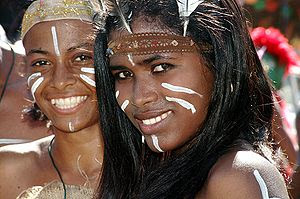intro: Bakwetu / Papa Wemba / Molokai
Set one:
1. Oba Oyebade Lipede / King Sunny Ade / Classics Vol.3
2. Mifono Yami / Papa Wemba / Molokai
Set two:
1. Masvingo Netara / Robson Banda & The New Black Eagles / Zimbabwe Frontline
2. Erelu Dosumum / King Sunny Ade / Classics Vol.3
Set three:
1. Neg yo Danjere / Boukan Ginen / Rev An Nou
2. Shofele / Papa Wemba / Molokai
3. Omo Lododo Eye / King Sunny Ade / Classics Vol.3
Set four:
1. Nyamutamba Ne Mombe / Thomas Mapfumo / Zimbabwe Frontline
2. Kouman Sat' A Ye / Boukman Esperyans / Kalfou Danjere
3. Image / Papa Wemba / Molokai
4. N' Vunda Ku Muceque / Ricardo Lemvo / Retrospectiva
5. Afrika / Boukan Ginen / Rev An Nou
Bantu
The word Abantu itself, incidentally, simply means "human beings". These tribes all have ntu as a core language in common, while their own languages usually comprise many dialects and variations.
They are part of the Niger-Congo language group and have strong ancestral affinities with a group of languages being spoken today in southeastern Nigeria.
They came from Central Africa, from where they began to expand to other parts around 2000 BC. These migrations are believed to have been the result of an increasingly settled agricultural lifestyle: although needing little land (far less than herding cattle use), land had to be fertile and well watered for cultivation to be a viable alternative. Population pressure in Central Africa may therefore have prompted the first Bantu migrations.
They had entered southern Uganda probably by the end of the first millennium A.D. and they had developed centralized kingdoms by the fifteenth or the sixteenth century. Pioneering groups had reached modern KwaZulu-Natal in South Africa along the coast by 300 A.D., and the modern Northern Province (formerly called the Transvaal) by 500 A.D.
The Bantu expansion was a millenia long series of physical migrations, a diffusion of language and knowledge out into and in from neighbouring populations, and a creation of new society groups involving inter-marriage among communities and small groups moving to communities and small groups moving to new areas.






















No comments:
Post a Comment